

Feeding an expected global population of 9 billion by 2050 is a daunting challenge that is engaging hundreds of millions of farmers, food processors, traders, researchers, technical experts, and leaders the world over. Fish and other aquatic products from aquaculture can and will play a major role in meeting the dietary demands of all people, while also meeting the food security needs of the poorest.
To realize the maximum contributions of the aquaculture sector toward achieving the targets set by the Sustainable Development Goals and Agenda 2030, coordinated and accelerated actions are required. Not only must these actions increase sustainable production, but also address the broader value chain, markets, and decent employment.
Recognizing the critical importance of aquaculture, and the need to exchange and discuss reliable information to further enhance its contribution to sustainable development, the Food and Agriculture Organization of the United Nations (FAO), at the request of its Members, collaborated with the Ministry of Agriculture and Rural Affairs (MARA) of the People’s Republic of China and the Network of Aquaculture Centres in Asia-Pacific (NACA), to organize the Global Conference on Aquaculture Millennium + 20 (GCA +20), 23-24 September 2021, in Shanghai, China.
Under the theme “Aquaculture for food and sustainable development”, the GCA +20 brought stakeholders from government, business, academia and civil society together to identify the policy and technology innovations, investment opportunities and fruitful areas of cooperation in aquaculture for food and sustainable development. A key output from the GCA +20 – The Shanghai Declaration- highlights the principles and strategic pathways to maximize sustainable aquaculture in achieving the Sustainable Development Goals, with a special focus on “Leaving no one behind”.

The FAO Technical Conference on Aquaculture, Kyoto, Japan, 1976, developed The Kyoto Strategy for Aquaculture Development and facilitated the transformation of aquaculture from a traditional to a science-based economic activity. It promoted technical cooperation among developing countries to expand aquaculture development.
The FAO/NACA Conference on Aquaculture in the Third Millennium, Bangkok, Thailand, 2000 adopted The Bangkok Declaration and Strategy on Aquaculture Development Beyond 2000, which articulated 17 strategic elements addressing the role of aquaculture in alleviating poverty, enhancing food security, and maintaining the integrity and sustainability of natural resources and the environment. The Strategy suggested measures that incorporate aquaculture into the development programmes of the public and private sectors.
The FAO/NACA Global Conference on Aquaculture Millennium +10, Phuket, Thailand, 2010 adopted The Phuket Consensus: a re-affirmation of commitment to the Bangkok Declaration, which recognized the continued value and relevance of the Strategy and identified seven elements that require further strengthening in order to enhance sustainable growth of the sector.
The Conference Secretariat was made up of the Food and Agriculture Organization of the United Nations (FAO), the Ministry of Agriculture and Rural Affairs of the People’s Republic of China (MARA), and the Network of Aquaculture Centres in Asia-Pacific (NACA). The Secretariat coordinated the overall implementation of the conference, prepared communication materials and provided secretariat support to the organizing committees. The Secretariat can be reached at [email protected].
The Food and Agriculture Organization (FAO) is a specialized agency of the United Nations that leads international efforts to defeat hunger.
The Ministry of Agriculture and Rural Affairs of the People’s Republic of China (MARA) is a component of the State Council in charge of agriculture and rural economic development.

The International Organizing Committee (IOC) was an international group of geographically and gender-balanced aquaculture experts, who collectively make decisions on policy issues regarding the conference. The IOC provided guidance to the other committees to ensure smooth and effective implementation.
The IOC members :
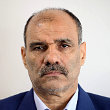
Hossein Ali Abdolhay
Iranian Fisheries Science Research Institute (Islamic Republic of Iran)
READ MORE

Danielle Blacklock
National Oceanographic and Atmospheric Administration (United States)
READ MORE
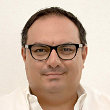
Giovanni Fiore Amaral
National Commission of Aquaculture and Fisheries (Mexico)
READ MORE
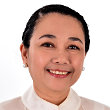
Alice Joan Ferrer
University of the Philippines, Visayas (Philippines)
READ MORE
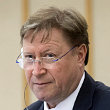
Matthias Halwart
Co-chair IOC
Food and Agriculture Organization (United Nations)
READ MORE
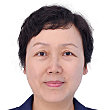
Hu Honglang
National Fishery Technology Extension Center (China)
READ MORE
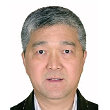
Jia Jiansan
Network of Aquaculture Centres in Asia-Pacific (Thailand)
READ MORE
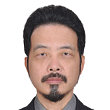
Jie Huang
Co-chair IOC
Network of Aquaculture Centres in Asia-Pacific (Thailand)
READ MORE
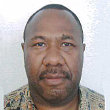
Robert Jimmy
Secretariat of the Pacific Community (Fiji)
READ MORE
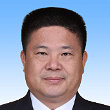
Li Jiale
Shanghai Ocean University (China)
READ MORE
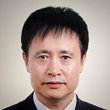
Liu Xinzhong
Co-chair IOC
Ministry of Agriculture and Rural Affairs (China)
READ MORE
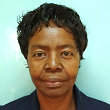
Beatrice Nyandat
Department for Fisheries, Aquaculture and the Blue Economy (Kenya)
READ MORE
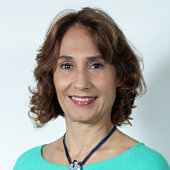
Maria Célia Portella
Sao Paulo State University (Brazil)
READ MORE
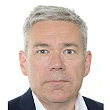
Yngve Torgersen
Ministry of Trade, Industry and Fisheries (Norway)
READ MORE
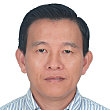
Hav Viseth
Ministry of Agriculture, Forestry and Fisheries (Cambodia)
READ MORE
The International Programme Committee (IPC) was an international group of geographically and gender-balanced aquaculture experts, and which oversees the development and structure of programme themes, including the keynote addresses, guest lectures and thematic sessions. This includes also the regional reviews of status and trends, a global synthesis, and the thematic reviews, as well as coordination of the poster session. This work was guided within the overall GCA +20 theme “Aquaculture for food and sustainable development”.
The IPC members :
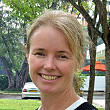
Jennifer Cobcroft
James Cook University, Townsville (Australia)
READ MORE
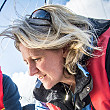
Elizabeth Cottier-Cook
Scottish Association for Marine Science (United Kingdom)
READ MORE
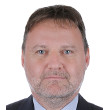
Lionel Dabbadie
Food and Agriculture Organization (United Nations)
READ MORE
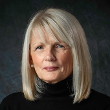
Susan Farquharson
Atlantic Canada Fish Farmers Association (Canada)
READ MORE
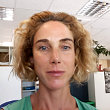
Ruth Garcia Gomez
Secretariat of the Pacific Community (New Caledonia)
READ MORE
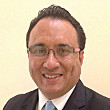
Antonio Garza
Fisheries and Aquaculture, State of Tamaulipas (Mexico)
READ MORE
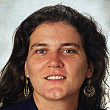
Shivaun Leonard
US Agency for International Development (United States)
READ MORE
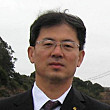
Liu Yingjie
Chinese Academy of Fishery Sciences (China)
READ MORE
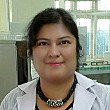
Kay Lwin Tun
University of Yangon (Myanmar)
READ MORE
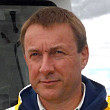
Graham Mair
Co-chair IPC
Food and Agriculture Organization (United Nations)
READ MORE
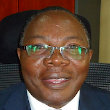
Charles Ngugi
Karatina University (Kenya)
READ MORE

Imad Saoud
American University of Beirut (Lebanon)
READ MORE
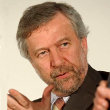
Patrick Sorgeloos
Ghent University (Belgium)
READ MORE
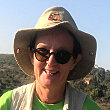
Karen Veverica
Auburn University (United States)
READ MORE
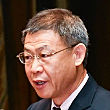
Yuan Derun
Co-chair IPC
Network of Aquaculture Centres in Asia-Pacific
READ MORE
Two key partner organizations supported the GCA +20, especially through their contributions to the Local Organizing Committee.
Shanghai Ocean University (SHOU) is a multi-disciplinary applied research-based institution of higher education located in the Pudong region of Shanghai.